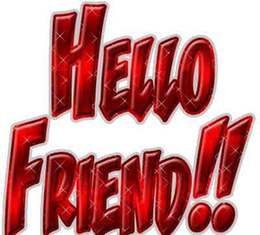For me, one of daily challenges is being addressed as "sweetie" or "hon" by complete strangers.
对我来说,有一个日常的小烦恼就是被一个全然不认识的人称为“亲爱的”或是“甜心”。
I get this regularly--from the coffee-cart vendor or department store salesperson, on the phone or at a doctor's office. Since when do strangers feel they can address others with such familiarity?
我经常被卖咖啡的小贩或百货商店售货员这么叫,在电话里或是在医生办公室里也常这样。从什么时候开始,陌生人感觉他们可以用这样熟稔的称呼叫别人的?
It rankles that some of the people I get this from are young enough that I could pass for their mother--that is, if I had had kids early. I understand the attempts to be friendly or convey warmth, but would the salesperson or vendor addressing me as I stand before them in a suit do the same to a man next to me dressed similarly? Somehow I doubt it.

更让人可恼的是,有些这么称呼我的人还很年轻,我够当他们的妈妈了——如果我早点生了孩子的话。我明白这些人试图表现得亲切或是表示对你的热情,但是这些售货员如此称呼站在她们面前西装革履的我,她们也会对我旁边同样西装革履的男人也这样称呼吗?我有点怀疑。
Is it a generational thing? Or a cultural disconnect? One colleague says she doesn't mind at all being called "sweetie" because it makes her feel young.
是因为年代不同了吗?还是文化差异?我的一个同事说,她一点也不在意有人叫她“亲爱的”,因为这让她感觉自己很年轻。
I guess I'm of the Jane Austen school of social conduct that believes "sir" and "ma'am," "please" and "pardon me" are proper forms of address in daily discourse. I say "excuse me, ma'am" or "sir, could you please..." when I have a question or need assistance. Perhaps I exaggerate, but I do sometimes worry that the increasing erosion of good manners I see every day or read about could spell the end of a civilized society.
我猜我在社交行为准则上属于简·奥斯汀派,认为“先生”和“女士”,“请”和“对不起”是日常交流中适宜的说法。我会在有问题或需要帮助时说“对不起,女士”或“先生,您能……”。或许我夸大其词了,不过我有时真的担心,我每天看到的或是读到的礼貌举止的日益衰败可能预示着文明社会的终结。
A New York Times article last year detailed how being called "sweetie" or "dear" chips away at the dignity of older people. "Professionals call it elderspeak, the sweetly belittling form of address that has always rankled older people," the article says. The piece refers to studies showing "that the insults can have health consequences, especially if people mutely accept the attitudes behind them."
去年《纽约时报》上的一篇文章详细讲述了对年长的人来说,被称为“亲爱的”有损他们的尊严。文章中说,这种甜蜜但带有贬低色彩的称呼形式总会让年长的人感到恼怒。文章引述了研究结果,说这种侮辱性称呼能带来健康问题,特别是如果人们默默地接受了称呼背后的态度时。
On several occasions, I speak up, asking others to refrain from addressing me with undue familiarity. Just tell me yes or no or provide help or point me to the right direction--no niceties or terms of endearment necessary.
在某些场合,我会大声说出来,请别人不要用过于熟稔的称呼来叫我。干脆点,告诉我“是”还是“否”,提供帮助或给我指路,不需要亲切的称呼或是表示喜爱的词汇。
Readers, what's your take on this? Do you mind being "sweetie-d" by strangers? Have you used these terms yourselves to casually address people you don't know?
朋友们,你对此有何看法?你在意被陌生人称为“亲爱的”吗?你自己用这样的词称呼过陌生人吗?
相关阅读:
9岁男孩传授的爱情秘笈
要想睡眠好,夫妻最好分床睡
8种瘦身的钻石方法
日本剩男剩女猎婚进行时
(来源:北外网院,英语点津编辑)